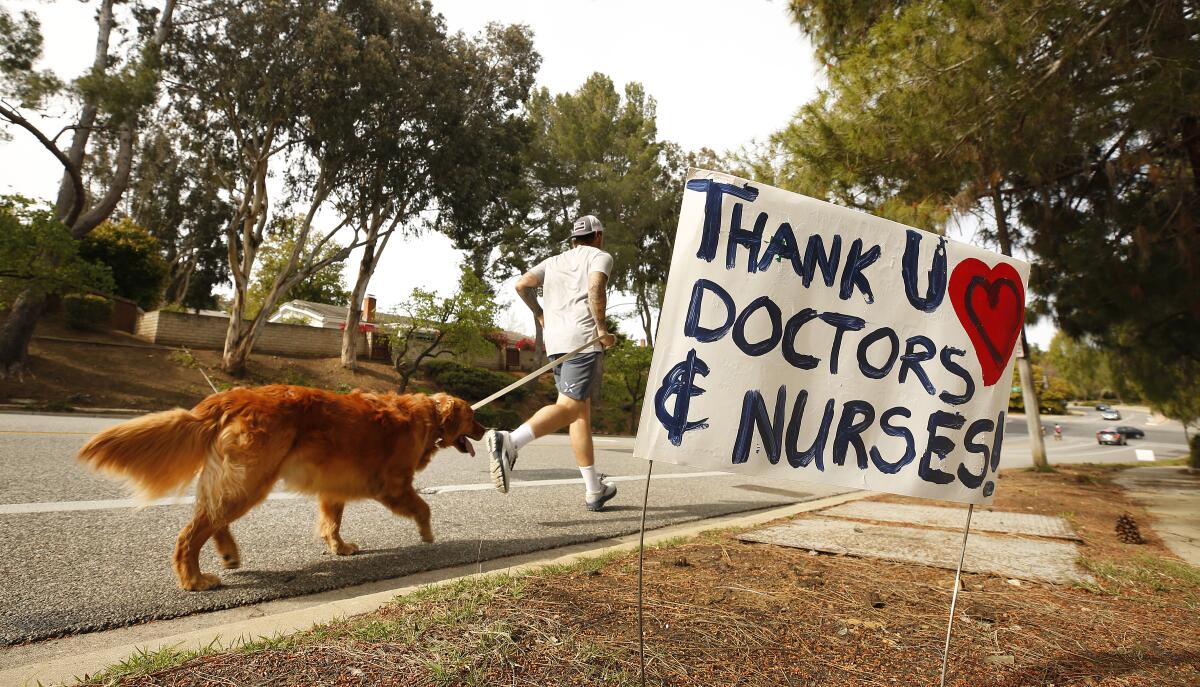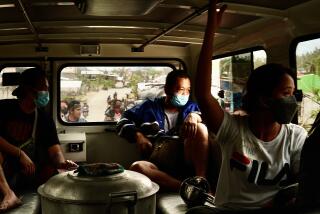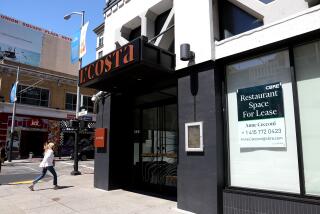Feed and comfort ER workers and save your favorite restaurant at the same time

- Share via
As we shelter in place, hunkered down, washing our hands, it’s easy to feel helpless, and worse, to feel useless. We endlessly refresh our browsers and inboxes for news about the progress of this pandemic. Overwhelmed hospitals and health workers. Unemployment and economic instability. The news is all there, all the time, along with the pain and suffering. But what can we actually do to help, when we can’t even leave our homes?
A couple of weeks ago we got an email blast from Tanya Holland, a friend and local chef, the owner of Brown Sugar Kitchen, a restaurant at the heart of Oakland’s vibrant restaurant scene. The order to close bars and restaurants had just come down, and fearing the devastating impact to her small business, she was imploring her customers to order takeout. We duly placed a lunch order.
While Ayelet was on her way to pick it up, she happened to hear from a friend who is an emergency room doctor. He told her that someone — a stranger — had just showed up at California Pacific Medical Center’s emergency department with dinner from a fine restaurant. It was the first thing he had eaten in days, he said, that wasn’t out of a vending machine.
We had been wrestling with feelings of helplessness and uselessness. Ayelet saw at once that this might be a solution. There had to be a way to nourish the front line healthcare heroes putting their lives at risk in our community every day and save our local restaurants at the same time.
Ayelet ordered 25 meals from Brown Sugar Kitchen and drove them over to Oakland’s Highland Hospital emergency room. The first nurse she saw when she arrived at the ER began to cry when Ayelet told the nurse that she had a delivery of food, which, of course, made Ayelet cry, too. We don’t know if the coronavirus can be passed through tears, but we’re glad nonetheless that they were standing more than six feet apart.
Four days after that impromptu delivery, www.EastBayFeedER.org was up and running. We began with one meal a day delivered to the staff at Highland Hospital, ordered from a local restaurant at full price (plus a generous tip). Now, two weeks after that first meal delivery, East Bay FeedER’s 40 volunteers feed the staffs of five East Bay ERs and intensive care units with food from the kitchens of five different local independently owned restaurants every day. We have raised $200,000 of the $400,000 we think we’ll need to continue this project for the next six weeks to two months, through this phase of the pandemic.
Most of us volunteers have jobs we are still trying to do remotely. Many of us have children whose education we must oversee. We’ve taken on this extra task for a few reasons. First, it’s a way to show our profound gratitude to the people who risk their lives every day to save us, our friends, families and neighbors.
Second, the independent restaurants of the East Bay are a vital part of the ethnically diverse and inventive culture that sustains this community. But we think that for many of us, a third reason is just as important: We’re doing it because being of use feels like a survival strategy, a way to make it through this lonely and long period of social isolation, a reminder of how it feels to be part of a community that nurtures its own.
When people used to ask the Fred Rogers, of TV’s “Mister Rogers’ Neighborhood,” for his advice with helping children confront scenes of horror and disaster in the world, he would say, “When I was a boy and I would see scary things in the news, my mother would say to me, ‘Look for the helpers. You will always find people who are helping.’”
Those words are comforting for children, and they can be comforting for adults, too, when we face some terrible calamity. But the heroic doctors, nurses and other practitioners throwing themselves body and soul into the fight against COVID-19 remind us that looking for the helpers isn’t enough.
We have to find ways — however circumscribed by quarantine or ability — to be helpers ourselves, not just out of a sense of duty to our neighbors and our communities, but because there’s comfort to be found in helping, in feeling that you can also be of some use.
Ayelet Waldman is the author, most recently, of “A Really Good Day.” Michael Chabon is the Pulitzer Prize- winning author of “The Amazing Adventures of Kavalier & Clay.” They live in Berkeley with their children.
More to Read
A cure for the common opinion
Get thought-provoking perspectives with our weekly newsletter.
You may occasionally receive promotional content from the Los Angeles Times.









